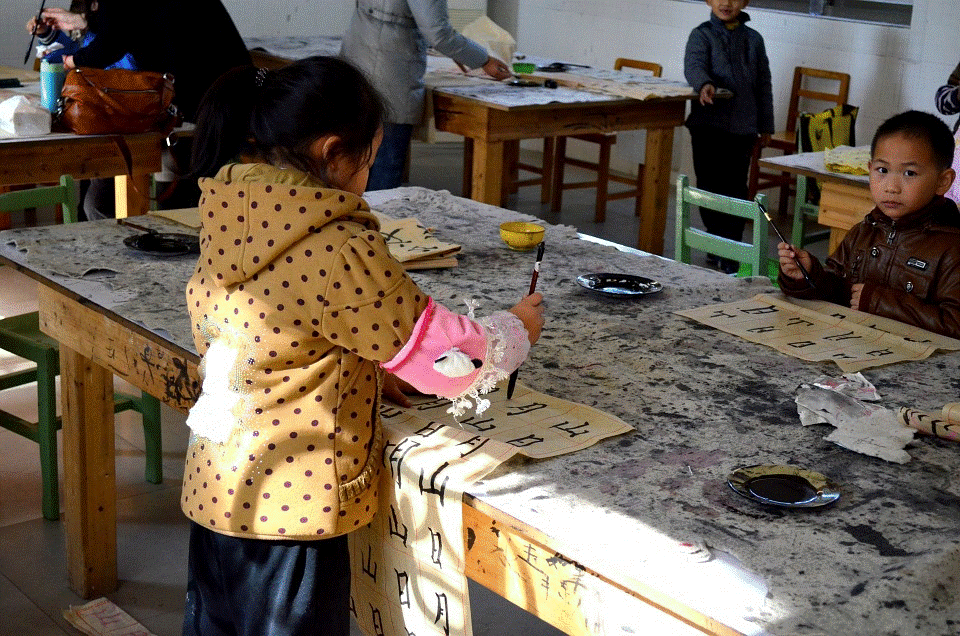
Being fluent in multiple languages is probably one of the best skills you can master. It’s a great tool you can keep in your arsenal, especially if you’re applying for higher education or entering the job market.
As far as languages go, Chinese is one that’s widely spoken, apart from English of course. And with how the world is becoming more interconnected more than ever, learning Chinese can work to your advantage. You may also advise your children to learn the language or enroll them in a class that focuses on teaching the Chinese language.
One such example is the Higher Chinese class. Enrolling your children in such a class will allow them to be more proficient in Chinese, which can eventually open them to more opportunities than previously thought.
If you’re still unsure if your child should take Higher Chinese, then this article will help you understand what it is and what it requires.
What is Higher Chinese?
Higher Chinese is basically advanced Chinese learning for students. It’s an optional subject that’s offered to Primary to Secondary level students. According to the Ministry of Education, Higher Chinese will enable students with a higher aptitude in the Chinese language to learn at a higher level in order to raise their standards. It also enables higher-order thinking for the language as it mainly focuses on comprehension.
How Different is it Compared to Normal Chinese?
Higher Chinese is more advanced. Compared to Normal Chinese, it contains around 20% to 30% more words to be learned every chapter. It also focuses more on composition and comprehension. Students are usually tested for those 2 only and don’t have any listening or oral components.
Higher Chinese Learning contains more workload. Most schools require 3 extra lessons. Students are required to take extra compositions. It’s stricter in terms of spelling, sentence, and grammar construction as well as comprehension. All of these outputs would mean more tests and exams.
Apart from that, students will be memorizing huge bulks of phrases and texts apart from the idioms that they are usually tested on. They have to deal with summarizing long passages.
To write effectively, they will need a thorough understanding of grammar as well as a good foundation with Chinese vocabulary. You’ll be expected to write fast.
When Can Students Start Learning Higher Chinese?
Most schools start offering Higher Chinese Language at the Primary 5 level. Some schools offer it at earlier levels, like in St. Hilda’s Primary School, where students at the Primary 2 level can opt-in for Higher Chinese.
Are There Requirements to Learn Higher Chinese?
Higher Chinese is offered in the majority of primary schools. However, they will only allow you to take the course if you’re at the Primary 4 or 5 standard Chinese level and you have at least a 70 mark grade.
If your child is in the Secondary level, the requirements get a bit complicated. If your child is at the top 11% to 30% with a score of an A* grade for Chinese, then they will be eligible to take Higher Chinese.
If they already have merit in the PSLE for Higher Chinese or at the top 10% in the PSLE, then they are also eligible.
What to Expect on the Exam?

As mentioned before, Higher Chinese contains 20% more words per chapter compared to normal Chinese. This would also be the case for students taking PSLE at the primary level. The words would be at an advanced level too.
When students enter the secondary level, they will be expected to write more. At the O levels, There are two courses in higher Chinese: Paper 1 and Paper 2.
For Paper 1, students are expected to make 2 kinds of compositions. They will learn to write essays and emails. For Paper 2, students will be more focused on summaries and comprehension.
What are the Advantages of Learning Higher Chinese?
Learning Higher Chinese will give primary and secondary level students a strong foundation in their language learning. They’ll have a better understanding of Chinese grammar. They’ll have more vocabulary too.
If a student starts Higher Chinese at the Primary level, they will be more prepared when they take it during secondary school. It will make them struggle less since they’ll have a solid background.
This is a huge advantage, especially if they are entering an SAP or IP secondary school.
Another good advantage Higher Chinese has to offer is that secondary students who’ve taken it at O Levels will be exempted from taking the Mother Tongue test when they go to Junior College.
Compared to students who only took normal Chinese, they won’t need to take additional A-Level subjects like H1 Chinese, giving them a lighter load on their first 2 years.
They will be able to focus on other subjects and work on other activities.
Who Should Take Higher Chinese?

Higher Chinese is for students who show a keen interest in learning the language. It’s a great way to learn the language better by grasping grammar and other comprehensive abilities. Students will be able to write better, whether it is through essays or composing emails.
However, all this would mean that students are expected to have more workload. If your child is already struggling, it might be best to stick with normal Chinese. You can consider Chinese home tuition to help your child improve.
You also won’t need this if you’re not planning to have your child go to SAP School. Higher Chinese is a demanding subject.
Forcing your child to study it if they show no interest might end up compromising their performance in their other subjects.
Final Remarks
Learning another language is recommended, especially when you start them young. They will be able to pick things up quickly compared to when they learn it much later.
If your child enjoys learning Chinese, you can have them take Higher Chinese to give them a strong foundation. Mastering another language requires more work, so don’t push them too hard and remember to make learning as fun for them as possible.
Apart from Higher Chinese, you can also let your children learn several other languages. Here are some suggestions:
5 Foreign Languages Singapore Kids Should Learn
Best Languages To Learn In Uni – Spend Those Module Credits Wisely
